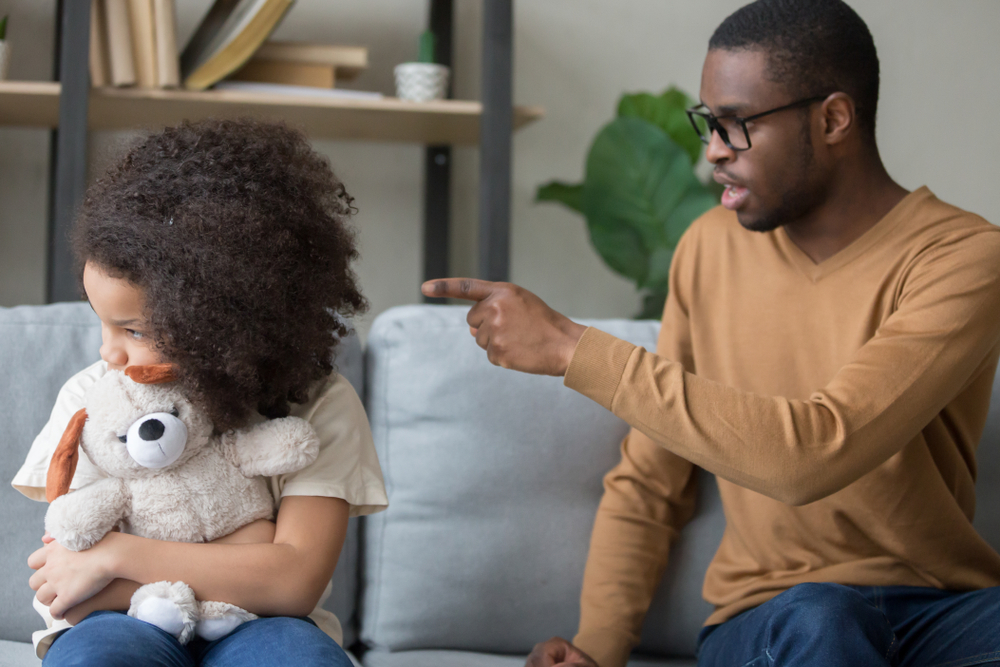 Most of us are aware of a movie star who catastrophically shocked us recently this year by engaging in an act of physical aggression at a popular awards ceremony. Very few could have predicted that this seemingly talented, dynamic, and impactful individual — who has had an earth-shattering successful career — was even capable of such behavior in front of a live audience. We usually don’t expect someone who we deem as one of the “good guys” to disappoint us at this kind of disturbing level.
Most of us are aware of a movie star who catastrophically shocked us recently this year by engaging in an act of physical aggression at a popular awards ceremony. Very few could have predicted that this seemingly talented, dynamic, and impactful individual — who has had an earth-shattering successful career — was even capable of such behavior in front of a live audience. We usually don’t expect someone who we deem as one of the “good guys” to disappoint us at this kind of disturbing level.
This led me to start thinking about what we as adults do when our gifted, creative, and high-performing kids shock and disappoint us. Do we give our kids a pass because they are overall good kids?
Our high-performing kids have proven to us that they are mostly respectful, responsible, and kind. So when bad things happen, should we just simply dismiss or excuse those occurrences with a stern, “Don’t let it happen again…” and move on? After all, our kids are usually their own harshest critics.
Should we dig deeper and recognize that their mental health may be suffering if they resorted to such uncharacteristic behavior? Should we place them in counseling and hope that’s enough to show that we took action and are getting them help?
Or should we throw the book at our kids and inundate them with consequences? Should we as a society make examples out of them so that others know that gifted, creative, and high-performers will not receive special treatment?
How do we honor those who may have been negatively impacted or significantly hurt if we do not sufficiently address our high-performer kids who commit infractions? How do we stop our high-performers from becoming entitled to engage in misbehavior if they do not receive adequate consequences?
As a former high-performing child, I have experienced both reactions to my mishaps. I remember receiving numerous passes throughout my school years (mostly from teachers, not my parents) because people knew my good character and strong reputation. However, the lack of accountability stunted my growth in developing critical skills that I would need later to deal with difficult life situations.
I have also been on the other side as well. I remember a high school vice-principal giving me a five-day suspension. Why? I let out a sigh of frustration as she was lecturing our advanced class about how she expected us to be role models for our entire student body. Her response to such a harsh consequence for me was, “You are a student in advanced classes so you should know better than the other students.”
This type of treatment felt incredibly unjust. It was unfair that adults would have expectations for me that they wouldn’t have for other kids. This left me feeling a bit dehumanized.
To go on, my dad immediately set up a meeting with this overzealous vice-principal and had me apologize for being rude while she was speaking to our class. After he convinced her to reduce my suspension to detention, we got in his dark blue Chevy truck to go home.
He then proceeded to rip the detention notice in half, described the entire situation as bogus, and handed me a $20 bill for my troubles. (Ha! I know, I know… I just described a confusing mix of a parent holding their child accountable while also enabling said child — but he had great intentions.)
My point is that disciplining a high-performing kid can sometimes be a confusing psychological process for us all. We adore these kids. We want to see them succeed. We know they are destined for great things.
However, it can be counterproductive for us to turn a blind eye to real issues that our high-performers may be struggling with in their lives.
Life has a way of holding us all accountable for our actions, so I hope that we can try our best to provide a healthy balance of accountability and support to our kids whenever it is possible for us to do so.
 About the Author
About the Author
Erica Whitfield is a Licensed Mental Health Counselor who has a Masters in Counseling Psychology and over 10 years of experience working with children and adolescents. She is the Founder of Positive Development, LLC, a counseling practice for youth located in Jacksonville, Florida. Erica combines expressive therapies using art, music, physical movement and writing, with evidenced-based therapeutic modalities such as CBT, solution-focused and positive psychology approaches to help children and adolescents process past trauma, transition during difficult life adjustments, form healthier relationships, perform better in school and work through self-harming behaviors. She specializes in providing strengths-based counseling and has helped hundreds of youth unleash their capabilities, transform obstacles into opportunities and find healthy ways to express their energy and creativity.
















